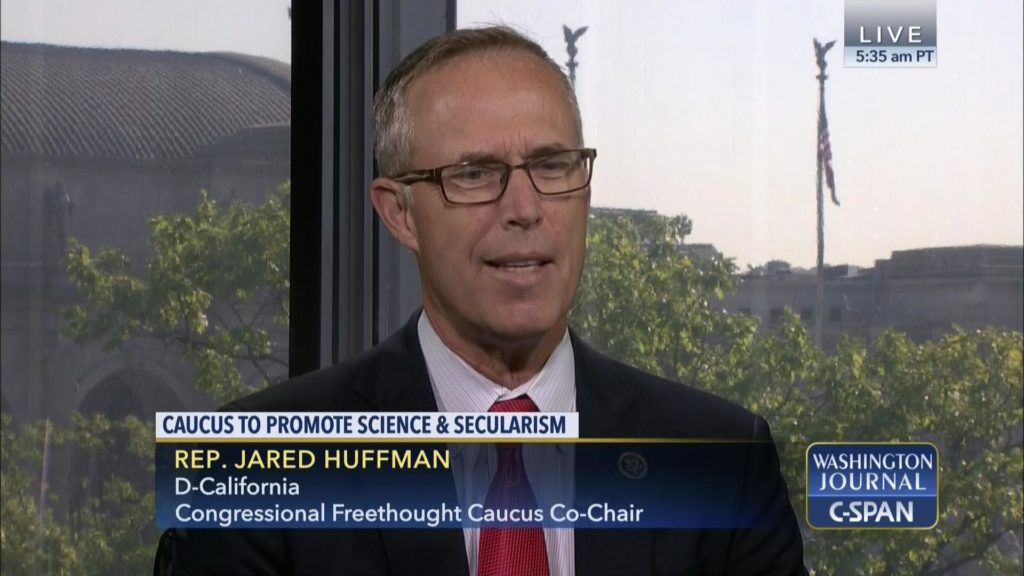New congressional caucus promotes reason, science and secularism.
In politics and government, interest groups typically need some level of popularity and respectability in order to exert influence. As such, today’s public announcement by Rep. Jared Huffman(link is external) (D-CA) of the formation of the first-ever Congressional Freethought Caucus is particularly noteworthy.
That’s right, a FreethoughtCaucus. Of all the constituencies known for wielding clout in Washington, freethinkers have never been among them. But with the percentage of Americans rejecting traditional religion growing steadily(link is external), that is now changing. The secular demographic is flexing political muscle—a result of unprecedented popularity and respectability—that is evidenced by the fact that sitting members of Congress are now caucusing under the freethought umbrella.
Huffman, who is openly nontheistic(link is external) and a well-known advocate for science-based policy, said the mission of the Congressional Freethought Caucus will be fourfold:
- Promoting public policy based on reason, science, and moral values.
- Protecting the secular character of government.
- Opposing discrimination against atheists, agnostics, humanists, seekers, and the nonreligious.
- Providing a forum for members of Congress to discuss morals, values, and personal religious journeys.
Secular leaders are applauding this development. Roy Speckhardt, executive director of the American Humanist Association(link is external), called the caucus “a potential game-changer” for nontheists and nonreligious Americans, predicting that it will result in a significant increase in lawmakers at all levels being willing to openly identify as humanist, nonreligious, or another secular identity. Larry Decker, executive director of the Secular Coalition for America(link is external), said the caucus is “a powerful blow against the de facto religious test that keeps so many secular Americans from seeking public office.”
Read the full story at Psychology Today


